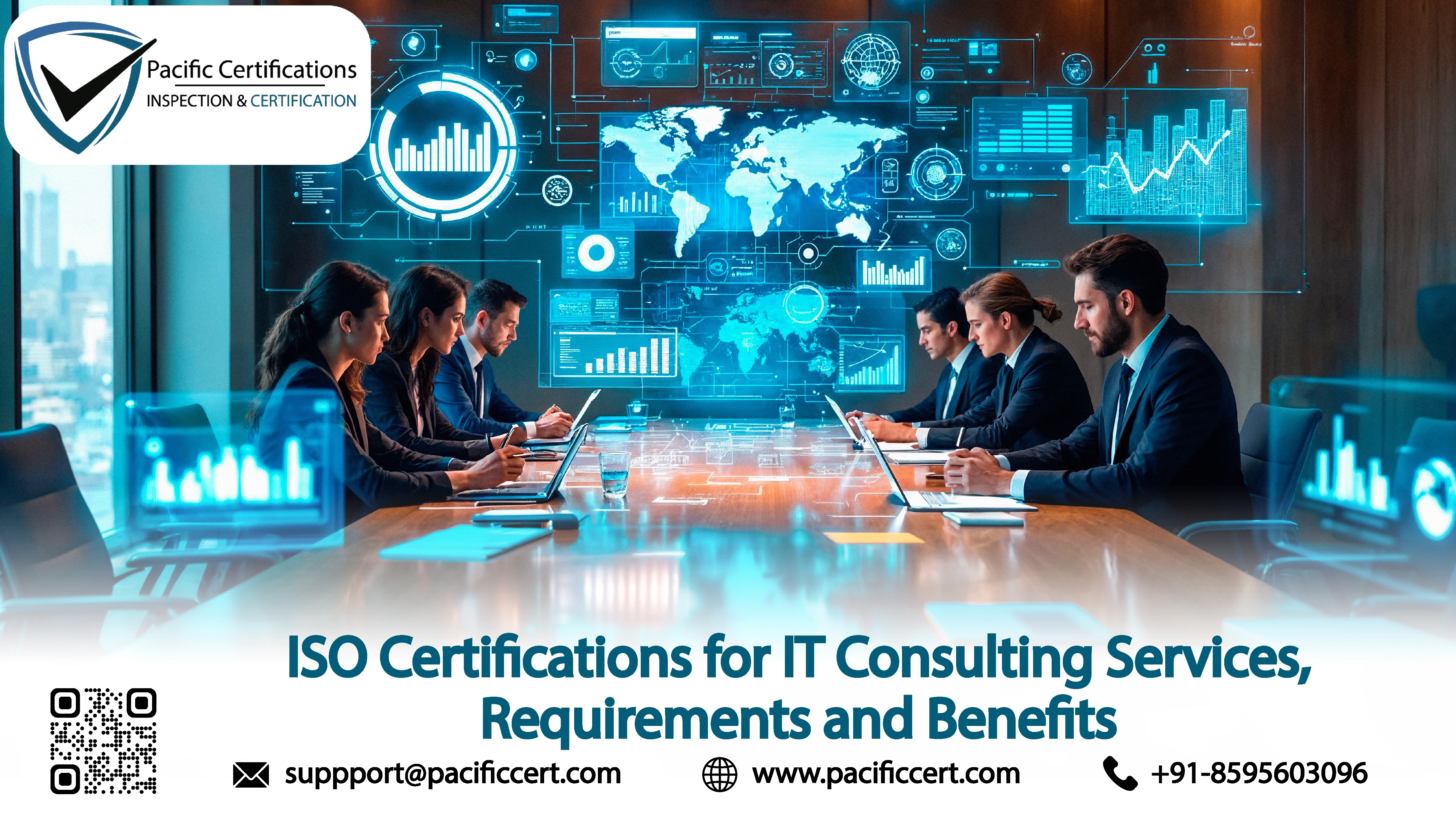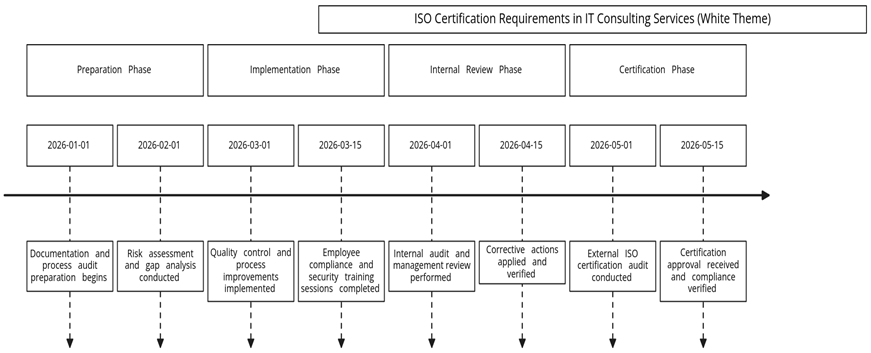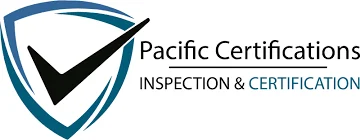ISO Certifications for IT Consulting Services, Requirements and Benefits

Introduction
IT consulting services are crucial for digital transformation and technology decisions for companies that are adopting the cloud, getting prepared for a cyber-attack, investing in data programs, modernizing applications and utilizing managed support. Buyers will continue to put pressure on vendor selection as consulting firms usually have access to client systems, internal data, privileged accounts and third-party platforms. This is the reason why queries such as IT consulting services with ISO certification, get IT company certified ISO and what are the requirements for ISO certification for IT consulting have high purchase intent.
ISO certifications are important for IT consulting because they turn the delivery promises into controlled routines with records. When clients query the best ISO certification for IT companies, they compare options like ISO 9001 vs ISO 27001 IT consulting and professional ISO certification consultants. It is also a support for consulting teams that are dealing with ISO information security management consulting and IT service management work where clients have the expectation of having clearer controls, ticket discipline and structured change handling.
This blog explains the most relevant ISO standards for IT consulting services and how certification requirements map to day to day delivery controls. Get started with your certification process for your IT consulting business, contact us at [email protected] today! In a services market where trust is earned through evidence, ISO certification helps you show controlled delivery and safer handling of client information.
Quick summary
ISO certification gives IT consulting services a structured way to manage delivery quality, information security and service consistency. The most relevant standards are ISO 9001 (quality management), ISO/IEC 27001 (information security) and ISO/IEC 20000-1 (IT service management), with additional options like ISO 22301 (business continuity) and ISO/IEC 27701 (privacy) for teams handling sensitive data and uptime commitments. Certification strengthens trust with enterprise clients and partners in a fast-changing global IT services market.
Applicable ISO standards for IT consulting services
IT consulting services often combine advisory work with delivery tasks such as access reviews, cloud configuration, migration support, incident handling and managed operations. ISO standards help convert those realities into controlled processes with defined roles, records and internal checks.
Click here to find out more applicable standards to your industry: Pacific Certifications blogs
ISO 9001 for IT consulting services (Quality management)
ISO 9001 sets requirements for a quality management system that helps IT consulting services deliver consistently across projects and accounts. It supports clearer intake and scope definition, structured change control, delivery reviews and documented acceptance steps. For teams working across multiple clients, ISO 9001 also supports repeatable templates for project plans, risk logs, meeting notes, escalation routes and closure reports. When prospects search ISO 9001 implementation IT services, they often want proof that delivery is controlled across consultants, partners and subcontractors, not dependent on individual habits.
Read more: ISO 9001 certification
ISO/IEC 27001 for IT consulting services (Information security)
ISO/IEC 27001 is one of the most requested standards for consulting firms because it addresses risk around access, credentials, laptops, cloud consoles, client data and third-party tools. It supports role-based access, secure onboarding and offboarding, access reviews, device controls, supplier checks and incident handling steps. Many buyers search what is ISO 27001 for IT consulting because they need a clear answer during onboarding and security questionnaires. ISO/IEC 27001 also supports consulting teams that provide ISO information security management consulting by setting a structured way to identify risks and track control evidence.
Read more: ISO/IEC 27001 certification
ISO/IEC 20000-1 for IT consulting services (IT service management)
ISO/IEC 20000-1 is relevant when IT consulting services include managed support, service desk operations, or SLAs tied to response and restoration times. It strengthens incident, change, release, problem and configuration management while setting expectations around service reporting. This helps reduce disputes about support scope because service catalogs and ticket records show what was requested, what was approved and what was delivered. This aligns with buyer searches like IT service management ISO certification.
Read more: ISO/IEC 20000-1 certification
ISO 22301 for IT consulting services (Business continuity)
ISO 22301 supports readiness for disruptions that can interrupt client delivery such as outages, tool downtime, loss of key consultants, or supplier failures. For IT consulting services, this includes planning alternate operating arrangements, defining recovery priorities for critical services and testing response steps. It is useful when clients ask for continuity proof for managed services, SOC support, cloud migration programs, or long running transformation projects.
Read more: ISO 22301 certification
ISO/IEC 27701 for IT consulting services (Privacy)
ISO/IEC 27701 extends ISO/IEC 27001 with privacy controls. It is relevant when IT consulting services touch personal data through analytics programs, HR systems, customer platforms, marketing systems, or identity programs. It supports privacy role definition, privacy risk assessment, vendor controls for processors, retention rules and privacy by design routines within delivery workflows.
Read more: ISO/IEC 27701 certification
What are the requirements for ISO certifications for IT consulting services?
Certification is not just about passing an external audit; it requires IT consulting services to put structured systems into practice. Many searches such as how to get ISO certified consulting firm and ISO certification guide IT companies show intent to implement step by step. Common requirements include:

Defining scope: Define what is covered such as advisory services, managed support, cloud consulting, cybersecurity consulting, audits, or multi-site delivery across teams.
Policies and commitments: Set policies for quality delivery, information security, privacy handling where applicable and service management commitments tied to SLAs.
Risk assessment: Identify risks such as privileged access misuse, credential leakage, client data exposure, tool outage impact, supplier risk, unclear change approval, weak ticket evidence and missed incident escalation.
Documented processes: Maintain written procedures for client onboarding, access provisioning, change control, incident handling, secure work practices, subcontractor onboarding and project closure steps.
Staff training: Train teams on secure handling of client data, access hygiene, incident reporting, service desk discipline and client specific delivery rules.
Record keeping: Maintain logs for training, access reviews, incident tickets, change approvals, delivery review notes, corrective actions, supplier checks and service reports.
Monitoring and internal audits: Track KPIs such as incident recurrence, SLA performance, access review completion, client complaints and audit findings, then review results through internal audits and management review.
Tip: Many IT consulting services start with ISO 9001 to standardize delivery and reduce rework, then add ISO/IEC 27001 to meet security questionnaire expectations and support ISO 27001 certification consulting firms. If you run managed services, ISO/IEC 20000-1 supports ticket-based delivery and SLA reporting, while ISO 22301 helps continuity planning for outages and major disruptions.
What are the benefits of ISO certifications for IT consulting services?
ISO certifications bring significant benefits to IT consulting services. These include:
Better outcomes in procurement checks and onboarding for ISO certification IT consulting services
Clearer scope control and more consistent delivery through a quality management system IT consulting teams can apply across accounts
Stronger information security controls that support ISO 27001 certification consulting firms and client due diligence
More consistent managed support delivery through IT service management ISO certification controls
Faster issue closure through structured incident handling, corrective actions and service reporting
Better readiness for disruptions through continuity planning when ISO 22301 is used
Improved credibility for firms being compared in ISO 27001 consultancy services reviews
Industry research supports why ISO adoption stays strong in IT consulting. Market forecasts project the global IT services market to reach about USD 2.59 trillion by 2030, which signals continued growth and higher buyer scrutiny on consulting and delivery partners. (source: Grand View Research) Technology consulting revenue continues growing, with buyers increasing reliance on consultants for modernization and advanced capability gaps. Security remains a major buyer driver as global cybersecurity market projections rise through 2030 and cybersecurity services are also projected to grow strongly by 2030, increasing demand for documented security controls and auditable delivery routines. (source: MarketsandMarkets)
ISO certifications cost for IT consulting services
ISO certification cost IT business depends on scope size, number of locations, employee count and which standards are included. A single site IT consulting firm certifying ISO 9001 alone is often lower cost than an integrated program combining ISO 9001 with ISO/IEC 27001 and ISO/IEC 20000-1 because audit days and evidence sampling increase. Costs also depend on whether your delivery processes are already documented, how disciplined your ticketing and change control are and how much training is needed before the certification audit. Ongoing costs also include surveillance audits during the certification cycle.
Contact [email protected] for a scope-based quote aligned to your IT consulting delivery model.
ISO certifications timeline for IT consulting services
ISO certification timeline for IT consulting services commonly ranges from 3-6 months for a focused scope and 6-10 months for multi-site or integrated certification programs, depending on readiness. Early steps include scope definition, internal gap review, risk assessment and process documentation, followed by implementation and internal audits. The external audit typically runs in two stages, with Stage 1 focused on documented system review and readiness and Stage 2 focused on verification of implementation through records and interviews. Teams with strong onboarding controls, access review routines and consistent ticket evidence often move faster because the system builds on what is already in place.
How Pacific Certifications can help?
Pacific Certifications, accredited by ABIS, audits and certifies IT consulting services of all sizes. Whether you deliver cloud consulting, cybersecurity consulting, managed support, or transformation programs, we provide independent third-party certification audits that help you align with ISO standards and gain recognition from clients and partners.
Here’s why IT consulting services should choose us for their ISO certification needs:
Our auditors cover software and IT service scopes that match consulting delivery models
We provide clear audit plans and transparent audit reports aligned to ISO requirements
We support integrated certification audits for combinations such as ISO 9001 with ISO/IEC 27001 and ISO/IEC 20000-1
We schedule flexible certification audits with delivery realities in mind, including remote team evidence where applicable
We support certification cycle requirements including surveillance audits and recertification audits
We focus evidence checks on real delivery controls such as access reviews, incident tickets, change approvals and closure records
Contact us
If you need more support with ISO certifications for your IT consulting services business, contact us at [email protected].
Author: Alina Ansari
Read More at: Blogs by Pacific Certifications

